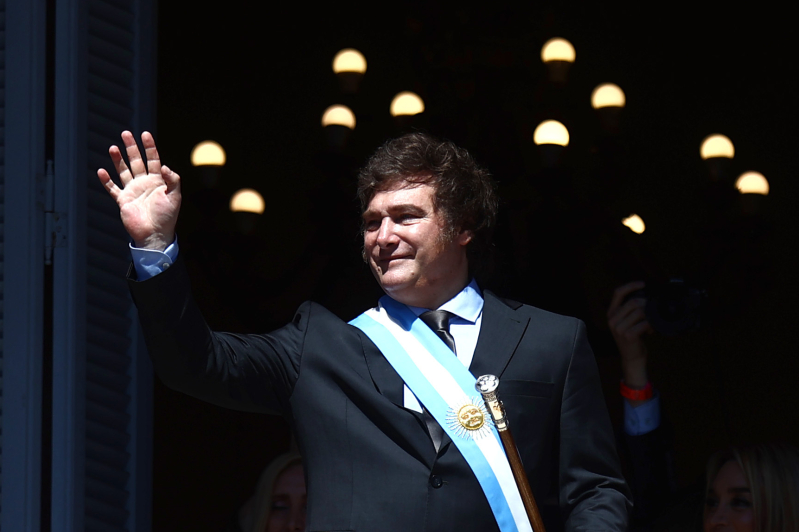
Since December 10 last year, Argentina has had a new government. In one of his first official statements, its President Javier Milei proclaimed 2024 as the "Year of the Defense of Life, Liberty, and Property." This declaration must be included in every official document of the National Public Administration until December 31 and will be displayed together with the Argentine National Coat of Arms.
Along with this statement, there has been speculation and some incipient action regarding the possibility of repealing the so-called "Law on Voluntary Interruption of Pregnancy," which was passed in December 2020 and practically legalized abortion in Argentina.
As stated by the Presidential Office regarding the proclamation of 2024 as the Year of the Defense of Life, "the initiative aims to highlight, disseminate and raise awareness of the values of life, freedom and property, returning to the path that made our country great. The National Constitution establishes... the duty of the State to ensure the benefits of freedom for all the inhabitants of the Nation, strengthening justice and consolidating internal peace."
Coinciding with the above, the presentation of a bill to repeal the law that legalized abortion in the South American country was revealed this week. The plan was presented in the Chamber of Deputies by Congresswoman Rocio Bonacci of La Libertad Avanza - the political party of which President Milei is the founder and leader - as a personal initiative but without the formal endorsement of the President.
"The project is my initiative, not that of the Executive, and has been submitted to the consideration of the body of which I am a member," said Bonacci on social media. Meanwhile, the presidential spokesman, Manuel Adorni, distanced the Government from the project promoted by Congresswoman Bonacci. "It is a legislative discussion, it is not part of the President's agenda, it has not been a decision of the President and it has not been promoted in any way by the Executive Branch," the official said.
The initiative has not been received very well but considering it in the context of Milei's pro-life decree, it undoubtedly serves as a thermometer to measure the mood regarding a future discussion on the possibility of repealing the abortion law in the country.
In light of these developments, various Christian pro-life organizations have responded by supporting what seems to be an increasingly clear position of the new Argentine government.
The Confederation of Baptist Churches (CONFEBA), a Christian institution founded in 1818 with more than 1,200 churches throughout Argentina, sent a letter to the President expressing its satisfaction with the decree declaring the Year of Life. The document states: "We believe that this is a time to fight a 'hard cultural battle', which we are willing to support and for which we place ourselves at your full disposal to collaborate in the dissemination and promotion of policies of freedom in defense of life, family, property and, of course, religious freedom."
The Ibero-American Congress for Life and the Family also responded to the Argentinian President, stating that "confronting what is considered politically correct today is not only disruptive, but revolutionary, and it must be done with clarity and courage, for which we express our appreciation and support in solidarity. We thank you for this enormous contribution, the transcendence of which will have repercussions in time."
In addition, the letter signed by Aarón Lara Sánchez, president of the Congress for Life and Family, mentions that "today you [President Milei] give us the extraordinary opportunity not only to be witnesses of history but also to be part of it, let's do it together."
Christian Daily International interviewed the president of the Christian Alliance of Evangelical Churches of the Argentine Republic (ACIERA), Christian Hooft, who said that without making any ideological or partisan affiliation, for them "it is very encouraging" and "it gives great satisfaction that the defense of life and freedom, two values that are a fundamental part of our beliefs, are being proposed." ACIERA was characterized by its strong opposition to the law that legalized abortion in the country, which was passed three years ago. The law establishes the right to abortion in all cases up to and including 14 weeks and maintains the right to abortion in cases of rape and risk to the life or health of the mother, without a time limit.
All this is happening while behind the scenes there is talk about President Milei's speech at the World Economic Forum in Davos, where he referred to the "bloody agenda of abortion" and left open the possibility of discussing in the future a proposal to repeal the Law on Voluntary Interruption of Pregnancy.
The presidential spokesman took pains to reiterate that the President is now "concentrating on the most urgent issues," especially economic ones, to “avoid a catastrophe and try to make these months pass as quickly as possible so that we can get Argentina back on track.”
The country is immersed in a serious economic problem, with high levels of poverty and inflation of more than 100 percent per year, informal labor, debt maturities with various international organizations, and no monetary reserves in the Central Bank of the Republic.
Among the presidential spokesman's explanations, he also said that the possible repeal of the abortion law "is not on the agenda," but "with this definition given by the President [in Davos], we can assume that it is indeed an issue that will be discussed at some point." And he clarified: “I am only making a conjecture about this fragment of the speech."
It seems inevitable that the issue will be on the agenda in the not-too-distant future, given that another official of Milei's government, Rodolfo Barra, the financial prosecutor who represents the Argentine state in legal matters, published an opinion piece last January in which he expressed his "well-founded hope" that the law that legalized abortion will be repealed this year.
The legalization of abortion essentially implied a change in the Common Law, and therefore, to be changed again, it must necessarily be discussed in Congress and eventually approved by both Houses.
If this were to happen, the pro-life movements, the evangelical churches, and the Catholic Church would once again take the lead in defending life. However, it should also be noted that not all Christians share the same stance on this issue. Some groups and churches are in favor of abortion, such as the historic Evangelical churches that are part of the Argentine Federation of Evangelical Churches (FAIE), an older entity with a minority representation.




